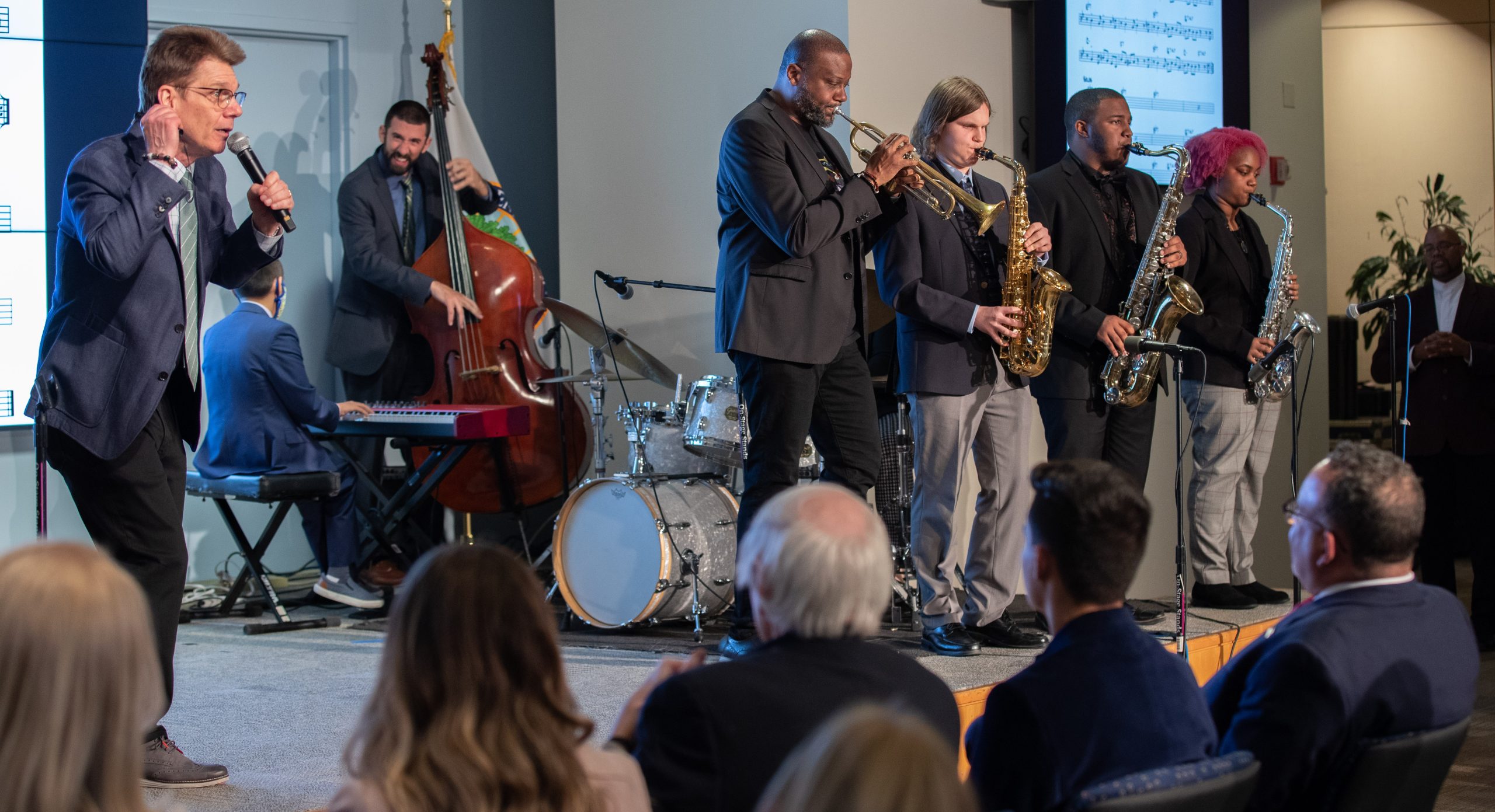Dr. Dyas in DownBeat: “Jazz – A Way to Run Your Business, A Way to Lead a Successful Life”
The following is an excerpt from the article “Jazz: A Way to Run Your Business, a Way to Lead a Successful Life” by Institute Vice President, Education and Curriculum Development Dr. JB Dyas, which appears in the August 2024 issue of DownBeat Magazine.

As a jazz musician and educator for the past several decades, I’ve come to realize that the jazz paradigm, that is, the tenets jazz musicians follow, makes not only for creative music making, but also for success in all aspects of life. Businesses from local mom and pops to Fortune 500 companies that have adopted the jazz philosophy in their practices and organizational structure have seen substantial increases in company morale, productivity and profits. And husbands, wives, significant others, children and extended family members who have come to live by the jazz mantra have found more peace, love, harmony and happiness in their lives.
The good news is that you don’t need to be a jazz musician, or even an aficionado, to reap the rewards that living a life guided by the jazz paradigm brings. You just need to know a little bit about what jazz is, how it works, and what jazz musicians do when creating this music that moves the soul (and feet!). In a nutshell, jazz is freedom within a framework. Here’s how it works.
Think of jazz like any other language – English, Spanish, French, Mandarin, Japanese or dozens of others spoken around the world. Just like a spoken language, jazz communicates thoughts and feelings. But rather than use words to convey how they’re feeling, jazz musicians use music to do the same. Just as in regular spoken conversation in which the conversers are saying what they’re thinking and feeling in real time depending on what others in the conversation are saying, jazz musicians are playing what they’re thinking and feeling in real time depending on what their bandmates are playing. That’s right – the overwhelming majority of what you hear in a jazz performance is improvised in the moment. That is, it is not composed ahead of time – just like regular conversation is not a prepared speech. Improvisation is an essential element of jazz.
Because there’s no need for spoken words, jazz is widely considered the universal language. Jazz musicians of all ethnicities, religions, backgrounds, cultures, races, personalities, socio-economic groups, ages and genders – irrespective of their particular spoken languages – can “speak” it. It’s not unusual to see a jazz ensemble comprising musicians of multiple generations from multiple countries, races and cultures all coming together for one common purpose: to make great music. If you can swing, regardless of anything else, we want you in the band!
With the exception of avant garde or free jazz, most jazz tunes are accompanied by a set of chords that provides support beneath the melody. This chord progression becomes the framework – called a “chorus” in jazz lingo – within which the jazz musicians improvise their own melodies spontaneously. A “chorus” is one time through a song’s entire chord progression. When jazz musicians perform a song, they play numerous choruses. The reason it doesn’t get boring – even though it’s the same chord progression played over and over – is because something new and different happens during each subsequent chorus. The audience doesn’t know what’s coming next for the very reason that the musicians themselves don’t know what’s coming next! It all materializes spontaneously and organically. The musicians and the audience are on a shared pathway of discovery. And if the musicians have done their homework, that is, know how to play their instruments, are creative and adhere to the jazz paradigm, it’s a beautiful thing, uplifting all those within earshot.
So, just what is the jazz paradigm? What are its tenets, and how do they translate into leadership, behavior and organizational structures that drive success for all who apply them? First and foremost…
